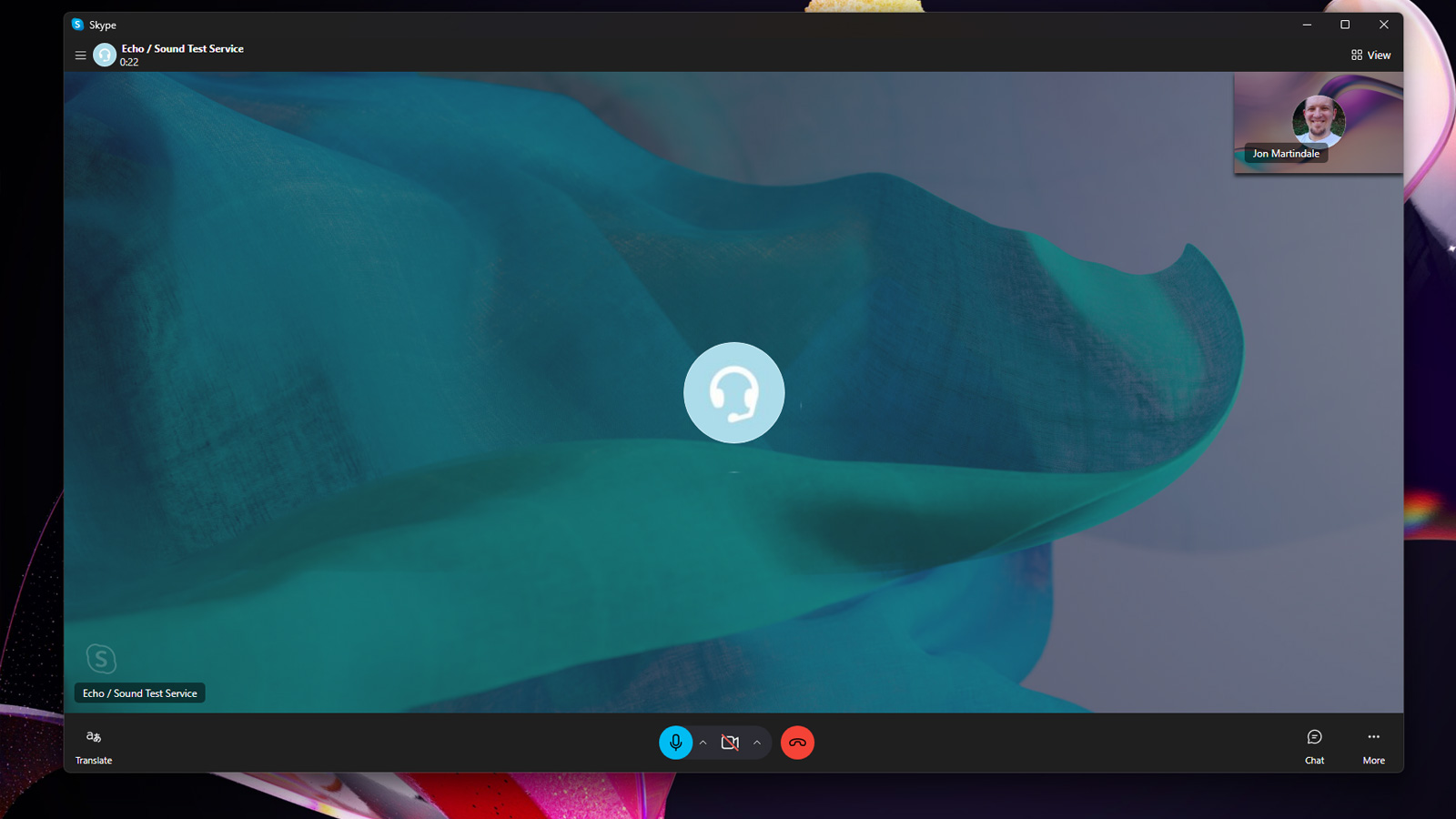I still remember switching over to Skype for my in-game comms in the mid-00s. Partly that was because I was really only playing with one or two friends at a time, and because I also used it to call my girlfiend. It helped me move on from MSN messenger where I had met said girlfriend, and I remember it as a revolutionary experience in call quality. The person on the other end just sounded so clear in comparison to other VOIP software I’d used.
I’d eventually start using Teamspeak when playing with larger groups, and Discord when that came to prominence in the 2010s. But I still used Skype for personal calls to relatives, and until very recently it’s how I chatted to my therapist.
So it’s a bittersweet moment where after 20 years of on again, off again usage, I’ve finally had my last Skype call. Microsoft is shutting Skype down this week and most of the millions of users that once frequented it have moved on to other platforms.
It’s time to say goodbye.
Hitting the ground running
Skype began life as a small project for a collection of Nordic and Baltic developers, who struck upon the golden idea of using peer to peer technology (like that used in a previous project of the developers, Kazaa) to reduce the costs of voice calls. Just over two years on from launching Skype in 2003, eBay bought the parent company for $2.5 billion.

Affordable, and then eventually free voice calls were a revelation at the time, making it possible to enjoy clear and effective voice communication when landline and mobile phones were prohibitively expensively; Especially for those of us who were young enough not to be earning the big bucks we are today.
But while Ebay made a fantastic return on its investment when it sold to Microsoft in 2011 for a staggering $8.5 billion, it still had a lot of growing to do before its eventual decline.
Grabbing big market share
By the time Microsoft brought out the check book for Skype, the VOIP service had over 600 million registered users worldwide, with an estimated 300 million active every month. I can tell you that me, my two brothers, both my parents, and a large portion of our extended friends and family all used it. Skype was bordering on being the the word we used for VOIP calling, “Yea I’ll Skype them later.”
But this was just the start of Skype’s global expansion. With Microsoft now driving its adoption and pushing it on its Xbox and Windows platforms as a premier communication tool and technology, it ballooned to close to 100 million users a month in the mid-2010s, capturing an incredible 40% of the international call market in 2014.

Although it started to see increased competition from newer, more cloud-based services like Zoom, Google Meet, and Microsoft’s own Teams, Skype even saw a resurgence during the pandemic. In March 2020 when lockdowns around the world first came into effect, Skype saw a 70% increase in its number of daily users over the previous month.
However, as the pandemic rolled on and the VOIP industry contracted to its keystones, Skype found itself increasingly ostracized, and daily user numbers continued to decline in the years that followed. In 2023, the daily user count fell to 36 million, while Microsoft’s Teams hit over 300 million active users around the same time frame.
That ultimately prompted Microsoft to announce at the start of 2025 that it would be shutting down Skype forever on May 5.
Sunsetting an icon
Although it feels like Microsoft developing Teams was the death knell of Skype, it’s possible that this was never the intention. Even in 2023, Microsoft added the Bing AI chatbot to Skype. While this might have been a way to bump up user numbers for its new AI ventures, its possible Microsoft still felt Skype could find its niche.
But today, that niche is a part of the large collective of apps and services swallowed by major companies and then put out to pasture. Microsoft and Google both have their own Wiki pages for it, it’s that extensive.

Although never inevitable, it’s easy to understand how Skype could struggle to compete in the modern landscape of apps and services. Whatsapp and Telegram make voice and video calling quick, convenient, and focused on your smartphone. Discord is great for larger group calls, and Zoom, Teams and the like handle the professional landscape.
Skype just isn’t that relevant any more. That makes me a bit sad, because I had many foundational online gaming moments on Skype. I talked to my then girlfriend, now wife for the first time on it. I video called my now-deceased grandparent over it during the pandemic.
But now it’s time to say goodbye. Maybe I’ll give Echo one final call for old times’ sake.
Services Marketplace – Listings, Bookings & Reviews
